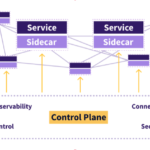Kubernetes consulting partner
Few insights for a Successful IT Career
Spend time to understand the business first and then you will understand your roles and responsibilities much better.
Example: “Step1: Deploy the Database changes first and then app1 and app2”
As a system engineer in my first job, my role was to resolve tickets assigned by my Tech Lead, at first I was directed to follow run books to resolve the tickets so I kind of knew what I was doing but did not understand the full context. During a lunch with an Enterprise Architect, he explained to me the business, application flow, and the data flow, after that my role became even clearer, my run books made sense and I was able to improve them.
In a new position control your urge to impress.
Example: “ I tried to complete the new app setup but security team revoked my access as I violated a policy”
In a new position, it is sometimes easy to get carried away in the excitement and end up choosing work that can get too challenging. In my experience, assessing the work and asking the questions is very important before signing up for a task, delivery is far more important in the initial days when being observed than impressing.
Once settled, knowing the ways around and policies of the company choosing challenging work can be the most rewarding for growth.
Think of what you can offer before asking for help.
Example: “Jeff I need 15 mins of your time to help me with this database query, my DB automation will help you save 10 mins every day.” or “Matt thanks for the time you spent on explaining to me the SSL security concepts, here I put a draft together, hoping that it might be of use to others like me as well, please review and publish.”
Just offering value to people who are willing to help is an important quality.
Above given are my examples. Sometimes you can get lucky and may find a selfless person who is just happy to educate or mentor at every chance possible. I found many in my case like that and a lot of my success is attributed to them.
Instead of asking for a promotion or a raise ask for a plan to get there.
Example: “Can we work on the career roadmap that can promote me from an Associate to Senior Associate?”
I realized it very soon and early in my career from a couple of bad managers that instead of asking for a raise and its better to know the metrics that are calibrated for promotion and start delivering those.
Measure your growth and pay yourself.
Example: “Yo! I brought myself a new watch today since I cleared my AWS certification”
Personally, I am motivated by rewards, so I tie my expensive desires to some of my career goals, it also helped me track my growth. I celebrated my milestones by paying my self and I was greedy for them.
We always expect someone else to recognize our efforts and forget to back ourselves.
Learn when to be creator and when to be curator.
Example: “ I know that this open-source library is well tested and could be used instead of writing it from scratch.”
Its as important to curate as to create, there is no need to re-invent a solution that is widely used out there.
Spend money and time on both your strengths and weaknesses.
Example: If Coding is your strength, spend time and money to learn an advanced concepts or new languages. If Systems are your weak link, spend time and money to take a basic course in Linux Administration or Windows.
Money and Time spent on personal skill development has paid me many times more and opened up invaluable opportunities.
My Personal opinion: Unless required absolutely do not spend money in learning “tools”, rather learn fundamentals.
Good or Bad it does not matter, demonstrate your new work.
Example: “Here is a quick 10 mins demo on the automation task I completed” or “Team I tried with scenarios A, B and C but still I keep getting the same error message, anyone has any ideas?”
This is the best advice I got. “Instead of saying you couldn’t complete it, start by saying what you have tried so far”
Demonstrating my work always provided me with either resolutions, valuable feedback or titles like “Rock Star”.
Teaching your skills creates leverage.
Example: Teaching is simply sharing your knowledge with people who are seeking it or in absolute need of it like people trying to find jobs.
When I am able to help someone get a job in Tech with training, the feeling is purely satisfying. When they buy homes, grow in career positions, or succeed in economic status, my feelings are indescribable, I can say I am equally proud and grateful. The best part of my career is being able to kick-start someone’s new career.
Additionally, It has also helped me with a deeper understanding and better command of my skillset, networking, new opportunities, and new streams of income.
Learn to package and sell your skills.
Example: Provide consulting, Create course material, Provide service for a fee.
In my case, when I am able to get project work demonstrating my knowledge and experience it gives me a euphoric high. I feel alive the most.
Don’t just try to be valuable to the company, always strive to be valuable to the market.
Example: “You were a very valuable resource to this company, but we are shutting down this line of business hence we have to let you go.”
It always helped me to remind myself that my job is temporary and anything can happen at any time. It made me be on my feet and not get too comfortable.



